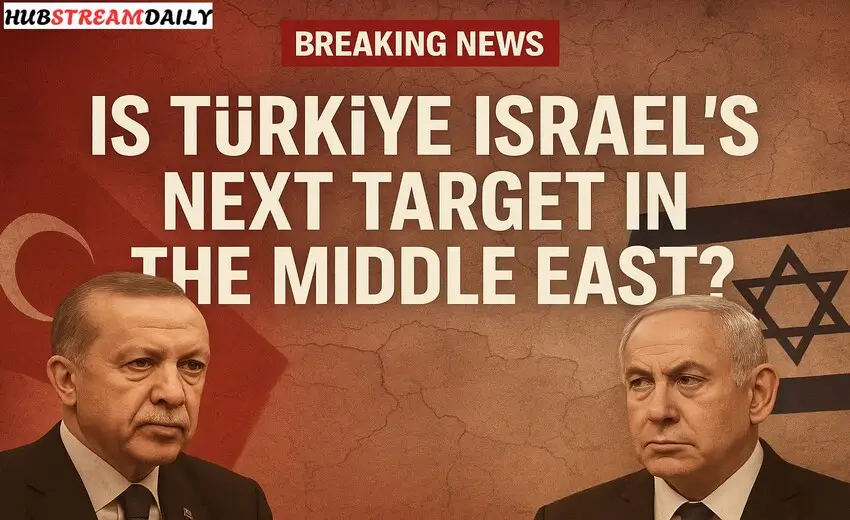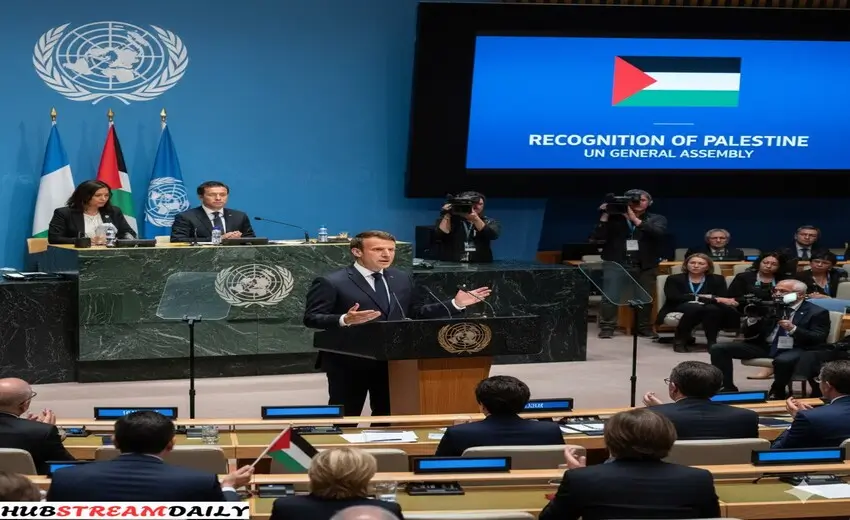
A Geopolitical Question That Demands Attention
In recent years, the Middle East has been at the epicenter of global political storms, with Israel consistently at the heart of disputes, conflicts, and shifting alliances. From Gaza to Lebanon, from Syria to Iran, Tel Aviv’s military and strategic maneuvers have shaped the regional power balance. But a provocative question is now echoing in diplomatic and media circles: Is Türkiye the next country Israel might target—politically, militarily, or through covert means—in the Middle East chessboard?
This question may sound exaggerated to some, but a closer look at the unfolding dynamics suggests there’s more depth to this possibility than mere speculation.
Türkiye’s Rising Influence in the Middle East
Türkiye, once described as the “bridge between East and West,” has evolved into a formidable geopolitical player under President Recep Tayyip Erdoğan’s leadership. No longer satisfied with being a passive NATO member or a bystander in regional affairs, Ankara has steadily expanded its influence:
- Military Presence: Türkiye has established strong military operations in Syria and northern Iraq, projecting its power across borders. Its cutting-edge drone technology has already altered conflicts in Libya, Nagorno-Karabakh, and Ukraine.
- Diplomatic Outreach: Erdoğan has positioned Türkiye as a defender of Muslim causes, particularly the Palestinian issue, gaining popularity in the Arab world.
- Energy Politics: Türkiye is at the crossroads of natural gas and oil routes, giving it leverage over both Europe and the Middle East.
All of this inevitably places Türkiye on a collision course with Israel, whose own ambitions often overlap with Ankara’s strategic objectives.
The Israel–Türkiye Love–Hate Relationship
Relations between Israel and Türkiye have always been complicated, fluctuating between cooperation and confrontation.
- The Good Times: During the 1990s and early 2000s, Israel and Türkiye enjoyed strong diplomatic and military ties. Israeli jets trained in Turkish airspace, and defense deals flourished.
- The Fallout: Things dramatically changed after the 2010 Mavi Marmara incident, when Israeli commandos stormed a Turkish humanitarian ship headed to Gaza, killing nine Turkish activists. This created a deep rupture between the two nations.
- Recent Rapprochement: In 2022, both countries attempted to “reset” relations. Ambassadors were reappointed, trade ties improved, and high-level visits signaled a thaw.
Yet, beneath this diplomatic surface lies unresolved tension. Türkiye remains one of the most vocal critics of Israel’s treatment of Palestinians, while Israel watches Ankara’s growing regional assertiveness with suspicion.
Why Would Israel See Türkiye as a Threat?
Several key factors could push Israel to perceive Türkiye as a potential “next target”:
- Championing Palestine: Erdoğan’s fierce criticism of Israeli policies in Gaza has positioned Türkiye as a moral rival to Israel in the Muslim world. This undermines Israel’s efforts to normalize ties with Arab states.
- Military Capabilities: Türkiye’s Bayraktar drones, advanced military industries, and expanding defense alliances give Ankara military credibility. Israel may see this as a challenge to its long-standing dominance in the region.
- Energy Rivalry: The discovery of natural gas in the Eastern Mediterranean has sparked disputes over maritime boundaries. Israel, Greece, Cyprus, and Egypt formed the Eastern Mediterranean Gas Forum, while Türkiye was left out, intensifying competition.
- Influence in Muslim Countries: Türkiye’s rising popularity in Arab and Asian countries threatens Israel’s soft power. For example, Ankara’s leadership is often portrayed as an alternative to Riyadh or Cairo in defending Muslim causes.
- Shifting Global Order: With Türkiye’s closer ties to Russia, China, and even Iran in some contexts, Israel may view Ankara as part of a new bloc that undermines Western dominance.
Possible Forms of Israeli Targeting
While an outright military confrontation between Israel and Türkiye seems unlikely, “targeting” doesn’t necessarily mean open war. Instead, it could unfold in different ways:
- Diplomatic Isolation: Israel may use its influence in Washington and European capitals to restrict Türkiye’s role in NATO and the EU.
- Energy Wars: By strengthening alliances with Greece and Cyprus, Israel could attempt to sideline Türkiye in Mediterranean gas projects.
- Covert Operations: Cyberattacks, intelligence leaks, and media campaigns could be used to undermine Türkiye’s image or destabilize its domestic politics.
- Proxy Conflicts: Clashes could intensify in Syria, Libya, or the Caucasus, where Türkiye and Israel support opposing sides.
In short, while the idea of Israel bombing Türkiye may be unrealistic, a more subtle and multi-layered rivalry is certainly possible.
Türkiye’s Possible Countermoves
Türkiye is far from defenseless. In fact, Ankara has several cards it can play in the event of intensified rivalry with Israel:
- Leverage over NATO: Türkiye holds one of the strongest militaries in NATO, giving it bargaining power against Western attempts to sideline it.
- Alliance with Qatar: Qatar’s wealth and Türkiye’s military presence there create a powerful regional partnership.
- Influence in the Muslim World: Türkiye can rally global opinion against Israel by positioning itself as the defender of Palestine and Muslim dignity.
- Control of Migration Routes: Türkiye’s geographic position allows it to pressure Europe by controlling refugee flows.
- Defense Technology: Türkiye’s growing self-reliant defense sector makes it less dependent on Western weaponry, giving it more autonomy.
Global Reactions: Would the World Allow It?
If Israel were to openly target Türkiye—militarily or otherwise—the global reaction would be swift.
- United States: Washington has strategic ties with both Israel and Türkiye, but U.S.–Türkiye relations have been strained. The U.S. might hesitate to intervene unless the conflict escalates dramatically.
- Europe: The EU relies heavily on Türkiye for migration control. Brussels would likely push for diplomacy rather than confrontation.
- Russia and China: Both Moscow and Beijing would seize the opportunity to strengthen ties with Ankara, further shifting the balance of power.
- Arab World: While many Arab states are normalizing relations with Israel, a confrontation with Türkiye could force them into an uncomfortable position, given Türkiye’s popularity among their populations.
The Bigger Picture: Israel’s Regional Strategy
Israel’s long-term strategy in the Middle East has often been to divide, weaken, and dominate. By forming alliances with Gulf states, marginalizing Iran, and undermining regional rivals, Israel seeks to maintain its security and strategic superiority.
In this context, Türkiye represents a unique challenge:
- Unlike Iran, it’s a NATO member.
- Unlike Arab states, it has a strong industrial and technological base.
- Unlike smaller states, it has real military clout.
This makes Türkiye both a difficult adversary and a potential rival power that Israel cannot easily ignore.
Is War Really on the Horizon?
Despite the tensions, it’s important to acknowledge that an actual war between Israel and Türkiye is highly unlikely in the near future. Both nations have much to lose:
- Israel would risk alienating its fragile new Arab allies.
- Türkiye would endanger its NATO ties and economic recovery.
Instead, what’s more realistic is a cold rivalry—fought through diplomacy, energy politics, proxy conflicts, and information warfare.
Historical Parallels: From Ottoman to Modern Times
When analyzing Türkiye–Israel relations, it’s impossible to ignore the historical layers. During the Ottoman Empire, the region that now constitutes Israel and Palestine was under Ottoman rule for centuries. The Ottoman sultans were responsible for maintaining the delicate balance between Muslims, Christians, and Jews in Jerusalem.
Fast-forward to the 20th century, Türkiye was the first Muslim-majority country to recognize Israel in 1949, a decision that set it apart from its Arab neighbors. This pragmatism was rooted in Türkiye’s Western orientation during its early republican years. However, Erdoğan’s Türkiye has reintroduced Ottoman-era symbolism and Islamic identity into its foreign policy.
For Israel, this represents an ideological clash: a secular ally from the past has now become a vocal Islamist-leaning challenger in the present. This clash of historical identities adds fuel to the rivalry.
Ideological Clashes: Secularism vs. Political Islam
At the heart of the tension lies an ideological confrontation. Israel, though Jewish in its identity, positions itself as a Westernized, modern, and technologically advanced state aligned with U.S. and European values. Türkiye under Erdoğan, meanwhile, has embraced political Islam as part of its national narrative.
This ideological divide manifests in:
- Türkiye’s support for Hamas, which Israel considers a terrorist group.
- Ankara’s criticism of Israel’s alignment with authoritarian Arab monarchies.
- Israel’s suspicion that Türkiye seeks to become the leader of the Muslim world, sidelining Saudi Arabia and Egypt.
In essence, Israel sees Türkiye not just as a geopolitical rival, but as an ideological competitor that threatens its normalization agenda in the Arab world.
The Economic Battlefield: Trade, Technology, and Sanctions
Despite tensions, Israel and Türkiye still share significant economic interdependence. Bilateral trade exceeded $8 billion in 2023, with Israel importing Turkish goods ranging from textiles to machinery. Türkiye also serves as a transit hub for regional energy routes.
However, this economic link could turn into a battlefield:
- Israel may lobby Western partners to impose restrictions on Türkiye’s defense industry.
- Türkiye could leverage its geographic advantage to disrupt Israeli energy exports.
- Both countries could weaponize trade as a diplomatic tool, tightening or loosening economic ties depending on political conditions.
This “silent front” may prove just as impactful as any military or diplomatic clash.
Regional Flashpoints: Where Could Conflict Spark First?
While Ankara and Tel Aviv may avoid direct war, several regional arenas could become flashpoints for indirect conflict:
- Syria: Turkey denies support to Assad, on the other hand, Israel regularly carries out airstrikes on the militias that are backed by Iran in Syria. Both may find themselves in unintentional confrontations.
- Eastern Mediterranean: Disputes over maritime borders, the search for energy, and the presence of the navy may escalate tensions to the level of skirmish.
- Palestine: An increase in hostilities in Gaza or Jerusalem, as a rule, triggers a firm response from Turkey, thereby, the chance of diplomatic breakdowns escalates.
- Caucasus: Turkey supports Azerbaijan, Syrian and Israel arms Baku. What began as collaboration could evolve into a competition if interests diverge.
Each of these flashpoints demonstrates the frailty of the Türkiye–Israel balance and how easily the dynamic could switch from rivalry to confrontation.
Conclusion: A Relationship to Watch Closely
The Middle East has been a turning point for alliances and confrontations in the past. Although in terms of an open conflict, the next direct “target” of Israel will not be Türkiye, Tel Aviv is, however, emerging as one of the main strategic competitors to it in the region.
The rivalry between these two powerful states will most probably become one of the factors that will determine the future of the Middle East. It is going to be seen in the Eastern Mediterranean gas race as well as in the fight for the influence of Muslim hearts and minds.
Therefore, the real question is not whether Israel will “attack” Türkiye, but rather how far each country will go to outmaneuver the other in this high-stakes regional chess game.




